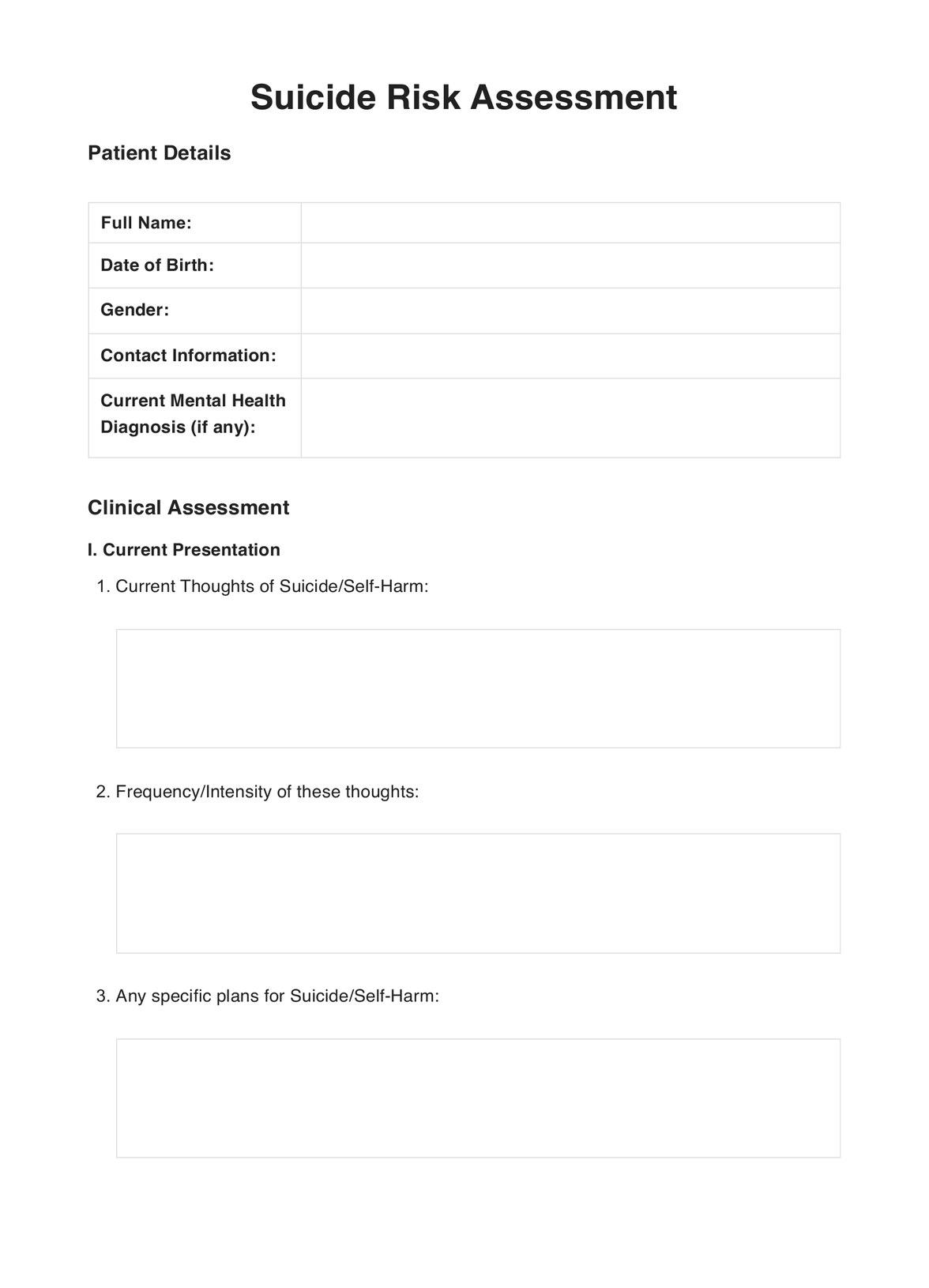Suicide Risk Assessments are used by a range of health professionals, including psychologists, psychiatrists, social workers, and counselors.

Suicide Risk Assessments
Discover Carepatron’s effective Suicide Risk Assessment tool. Designed for mental health professionals to gauge the severity of suicidal thoughts & tendencies.
Suicide Risk Assessments Template
Commonly asked questions
Suicide Risk Assessments are used when there's a suspicion or evidence of potential self-harm or suicide risk.
Suicide Risk Assessment is used as a systematic approach to identify, evaluate, and manage the risk of suicide in an individual. It involves a detailed exploration of various factors associated with suicide risk and protective factors that can mitigate this risk. The information gathered from the assessment then guides the development of a safety plan and treatment plan.
EHR and practice management software
Get started for free
*No credit card required
Free
$0/usd
Unlimited clients
Telehealth
1GB of storage
Client portal text
Automated billing and online payments











